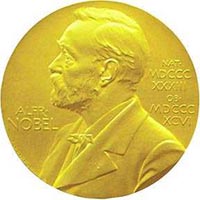
By Tobias Thienel
A recent case in the English courts – until now the High Court and the Court of Appeal – has raised absolutely central points about the act of state doctrine, and in so doing has neatly explained the doctrine. (I know this doctrine is not actually a rule of international law, but it is not unrelated.)
The case is interesting also at a political level. The names of the parties are telling: Yukos Capital Sarl v OJSC Rosneft Oil Company [2012] EWCA Civ 855. Yukos famously used to be the company of Mikhail Khodorkovsky, the businessman and billionaire who has fallen foul of the Kremlin and has spent the last few years in prison. His company, too, has been largely broken up and rid of its assets. The respondent in the English proceedings, on the other hand, Rosneft, is a Russian state-controlled company.
Yukos Capital Sarl had won an arbitral award against Rosneft. This had later been annulled in Russian state court proceedings. However, a court in the Netherlands (the Gerechtshof Amsterdam at second instance) later still recognised the arbitral award and declined to recognise the judgment annulling it. The court held that the Russian court had not been impartial and independent owing to the strong political elements of the case (Decision of 28 April 2009, Case No. 200.005.269/01, available via http://zoeken.rechtspraak.nl/default.aspx).
The case then moved to England. As in the Netherlands, Yukos sought recognition and enforcement of the award in its favour. Also as in Amsterdam, Yukos argued that the Russian annulment should be refused recognition because it had constituted ‘a travesty of justice’.
Rosneft resisted this argument on the basis of the English act of state doctrine. This doctrine holds,in the broadest outline, that English (like U.S.) courts ‘will not sit in judgment on the acts of the government of another done within its own territory‘ (Underhill v Hernandez, 168 U.S. 250, 252 (1897)) or ‘will not adjudicate upon the transactions of foreign sovereign states‘ (Buttes Gas Oil Co v Hammer (No 3) [1982] AC 888, 931G). On this basis, Rosneft said that the decision of the Russian courts, as a sovereign act, could not be questioned in an English court.
Continue reading →


 By Tobias Thienel
By Tobias Thienel